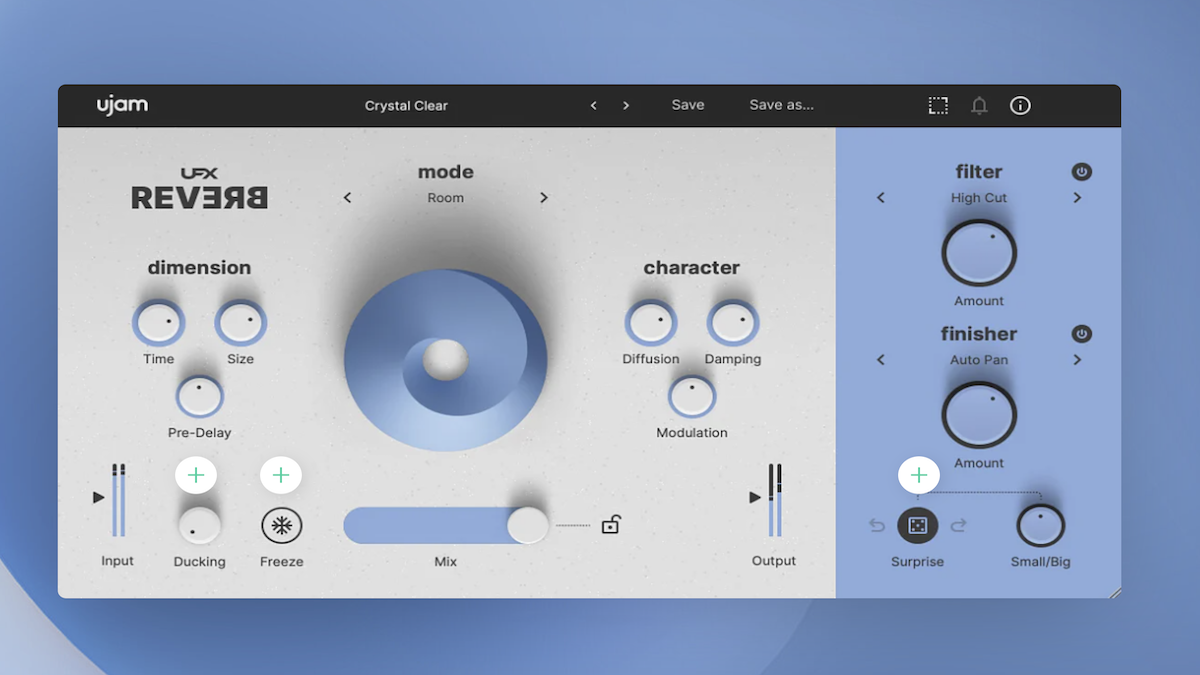Ujam's UFX Reverb plugin is about as '2023' as reverbs get
It's easy to understand, easy on the eye and even easier to create your own reverbs with
Want all the hottest music and gear news, reviews, deals, features and more, direct to your inbox? Sign up here.
You are now subscribed
Your newsletter sign-up was successful
Many effect plugins these days are being designed with more descriptive section names to make them easier to understand. Ujam's new UFX Reverb is a case in point. Add a sprinkling of 'AI' and this could be the most '2023' plugin out there.
The main modes in UFX Reverb might not sport familiar names then, but they do contain everything you need from a reverb. Mode has the main Reverb type, with a drop-down menu containing 10 reverb engines including Room, Hall, 80s, Reverse and Gated.
The Dimension Mode is all about reverb times, so you get controls for Predelay, Time and Size, while Character is about the physical room interaction with Diffusion, Damping and Modulation controls.
The standout area could well be the effects section to the right of the UI though. Here you get 25 filter effects ranging from standard EQs to distortions, bit crushers and lo-fi effects that will take your reverbs in many a new direction.
Meanwhile, the Finisher section contains 50 more abstract effects that can take your reverbs into completely uncharted waters under five section headers called Basic, Move, Delay, Glitch and Beyond.
Here's a quick tour of UFX Reverb.
The neatest part of UFX Reverb is how easy it is to create your own reverbs, with everything set up so you can't really go wrong. There's even a 'Surprise' option that lets you create reverbs using random values – the parameter ranges of which you can customise – which presumably uses the AI side of the plugin to come up with results that always work.
Want all the hottest music and gear news, reviews, deals, features and more, direct to your inbox? Sign up here.
UFX Reverb looks like being one of the widest-ranging and wildest sounding reverbs we've seen, with potentially enormous flexibility, so we'll be getting this one in for review soon.
It's not too pricey either – you're looking at around £51/$€57. You can get more information from the UJam website.



Andy has been writing about music production and technology for 30 years having started out on Music Technology magazine back in 1992. He has edited the magazines Future Music, Keyboard Review, MusicTech and Computer Music, which he helped launch back in 1998. He owns way too many synthesizers.
